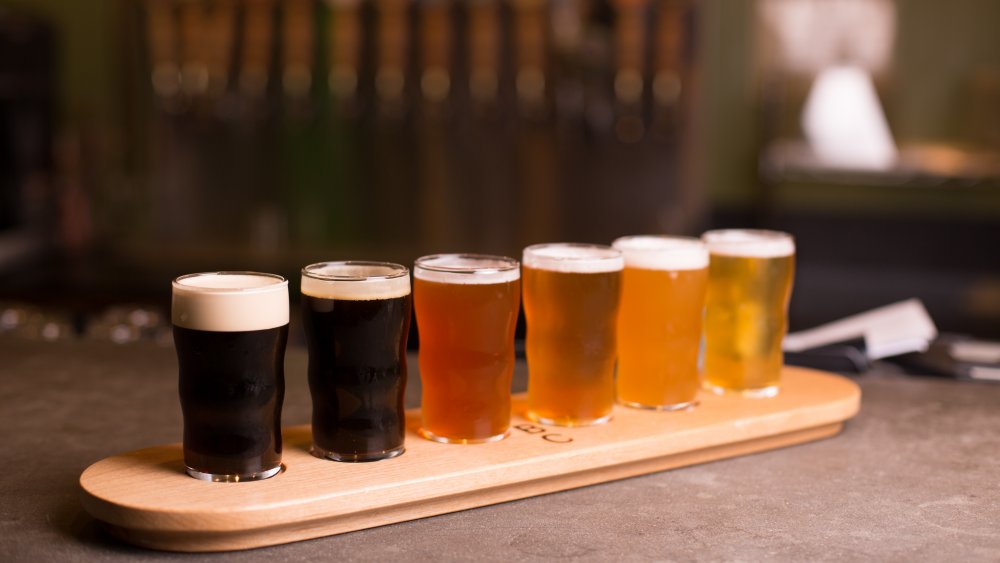The Real Reason You'll Find Fewer Seasonal Craft Beers This Summer
Well, it's already shaping up to be a bummer of a summer. Fairs and festivals of all types are canceled, there's still no baseball (yet), Fourth of July fireworks are not happening in many areas, and even a trip to the beach might make us sick.
Well, not to rain on your parade any further (since it's probably been canceled as well), but Food & Wine is now telling us that there's even more bad news for beer lovers — at least those of us who aren't super loyal to specific brands. If one of your favorite parts of the summer season involved sampling all the new offerings from craft breweries, well, prepare for yet one more massive disappointment. Yes, that pesky pandemic and ruiner of all the things has also interfered with brewery R&D to the point where, according to booze compliance company Sovos ShipCompliant, brewers registered 43.4 percent fewer new products in the months of April and May than they did during those same months last year.
Why there will be fewer beers
Breweries took a devastating hit when mandatory closures were ordered. While most were still permitted to continue producing their product, they no longer had the ability to try out anything new in the tasting room. Larry Cormier, vice president and general manager of Sovos ShipCompliant, told Food & Wine, "Craft beer innovation takes place in the taproom. " He also explained that, for many smaller brewers, taproom sales take precedence over other distribution methods. Once the bars and restaurants shut down, the Brewers Association found that nearly two-thirds of brewery workers polled also lost their jobs for the duration (if not permanently).
With fewer workers, it's harder to develop new products. There have also been disruptions in the supply chain, resulting in ingredients being harder to come by. Not to mention, shoppers who found themselves reluctant to venture out of the house were more likely to buy beers readily available in the grocery store, and rising economic uncertainty also means cheaper beers tend to be better sellers. All these factors add up to hard times in the beer business, to the point where Food Dive speculates that thousands of breweries may wind up closing.
Manufacturers large and small are reluctant to risk introducing new products into such an uncertain market, so instead they're doubling down on the tried-and-true. Luckily, their best-sellers are pretty darn good, so we'll still have plenty of high-quality beer to see us through this sorry excuse for a summer.

